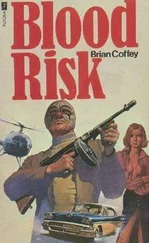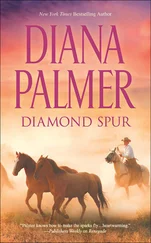Deon Meyer - Blood Safari
Здесь есть возможность читать онлайн «Deon Meyer - Blood Safari» весь текст электронной книги совершенно бесплатно (целиком полную версию без сокращений). В некоторых случаях можно слушать аудио, скачать через торрент в формате fb2 и присутствует краткое содержание. Жанр: Старинная литература, на английском языке. Описание произведения, (предисловие) а так же отзывы посетителей доступны на портале библиотеки ЛибКат.
- Название:Blood Safari
- Автор:
- Жанр:
- Год:неизвестен
- ISBN:нет данных
- Рейтинг книги:4 / 5. Голосов: 1
-
Избранное:Добавить в избранное
- Отзывы:
-
Ваша оценка:
- 80
- 1
- 2
- 3
- 4
- 5
Blood Safari: краткое содержание, описание и аннотация
Предлагаем к чтению аннотацию, описание, краткое содержание или предисловие (зависит от того, что написал сам автор книги «Blood Safari»). Если вы не нашли необходимую информацию о книге — напишите в комментариях, мы постараемся отыскать её.
In Blood Safari
A complicated man with a dishonorable past, Lemmer just wants to do his job and avoid getting personally involved. But as he and Emma search for answers from the rural police, they encounter racial and political tensions, greed, corruption, and violence unlike anything they have ever known.
Blood Safari — читать онлайн бесплатно полную книгу (весь текст) целиком
Ниже представлен текст книги, разбитый по страницам. Система сохранения места последней прочитанной страницы, позволяет с удобством читать онлайн бесплатно книгу «Blood Safari», без необходимости каждый раз заново искать на чём Вы остановились. Поставьте закладку, и сможете в любой момент перейти на страницу, на которой закончили чтение.
Интервал:
Закладка:
He was a self-assured young man, intelligent, passionate, dedicated and in his element. He impressed his superiors with his knowledge and work ethic. The next offer in September 1985 was made on merit.
The colonel came down from Pretoria to inspect De Brug and over a cup of tea in a prefab building he told him about the two army units in the Kruger Park. One was a contingent of 7 SAI, an infantry battalion from Phalaborwa, which patrolled the park’s border with Mozambique. The other was the more obscure ESU, or Environmental Services Unit, initially formed under the influence of the legendary former special forces Major Jack Greeff, but under the control of the Nature and Environmental Conservation Unit. The purpose of the ESU was to halt the epidemic proportions of ivory poaching and smuggling in Kruger.
Would Jacobus be interested in joining them?
He had said ‘yes’ long before his cup of tea was empty. Fourteen days later he reported for six weeks’ intensive training at the 5 Recce Battalion base in the Lowveld. That was where he met Vincent Mashego for the first time, his tracker, partner and future comrade.
Mashego was the opposite of Jacobus. The rich white boy was part of the ruling elite; the young black man grew up in Shatale, Mapulaneng, a member of a dirt-poor, marginalised tribe whose language, sePulane, was not taught in any school or book. His tribal name was Tao, which meant ‘lion’, the totem of the maPulana tribe, but he was so quiet and shy that his people called him Pego. It was the cynical abbreviation of Pegopego – the chatterbox.
Jacobus was lean and muscular and a stranger to the area. Pego Mashego was small, scrawny and tough, and he knew the Lowveld terrain like the back of his hand. The Afrikaner was there because he wanted to be, the man of the maPulana through financial necessity. But they had one thing in common: a deep love of and interest in nature.
Their friendship was not spontaneous; their differences in background, class and personality were too great. But over the six weeks of hardship a bond of mutual respect began to develop. What lay ahead of them would make the bond unbreakable.
The strategy of the ESU was to deploy two-man teams to patrol an area for a week on foot. The areas were determined by timetables and grid references. The white man in each team was the leader and carried the radio. The black man carried the rations and was the tracker. Both were armed with a rifle and they holed up in thickets and rock clefts during the day so they could hunt their prey at night, since ivory poachers were nocturnal predators.
The strategy was simple: find the poachers and radio for support. If you could not do otherwise, however, shoot them before they melted away into the bush. Shoot to kill. Let them know that it was war, because Africa could not afford to lose a thousand elephants a week. At the rate they were killed in the eighties, the elephant would have been extinct by 2010.
Team Juliet Papa, the call sign for Jacobus and Pego, was deployed in November 1985, initially in the ‘safer’ western parts of Kruger, where they could find their feet. Only in February 1986 were they sent farther east – and experienced the relenüessness of the ivory poacher.
Twenty years on, Jacobus le Roux was still filled with loathing when he described it to me. They came upon three dead elephants for the first time. The cow had been shot because she was too close and dangerous. The half-grown calf had been shot just for fun. The bull’s head was a bloody, unrecognisable mess where the poachers had chopped the tusks out with axes and pangas. Rubbish was strewn around, the fireplace left uncovered. The disrespect was blatant and deliberate. But the offenders were long gone, back across the border to Mozambique.
Three weeks later they were involved in their first skirmish, exchanging fire with a gang of poachers in the night. They followed the blood spoor of one to the border. Scarcely a week later, Jacobus le Roux shot and killed his first man.
They had seen the thieves’ fire burning at night in the dry river bed of the Nkulumbedi river, only a few kilometres from the Langtoon Dam in the north-east of the park. Whispering over the radio, Jacobus tried to call in reinforcements because the group of poachers was twelve or fourteen strong, but as usual the signal was too weak. They crept closer and saw the butchery in the flickering light of the flames. Two giant elephant bulls were plundered while the gang laughed and chatted in muted voices.
They took aim. Jacobus set his sights on a man in a torn red shirt who stood to one side giving orders. That first time, he trembled slightly, although his revulsion at the slaughter was great. His brain was reluctant to send the command to the trigger finger. Only when Pego pressed him softly in the side with an elbow did he close his eyes and fire. He opened his eyes and saw the man drop. There was no dramatic convulsing as they do in movies, just a sinking, a slow, pathetic, lifeless collapse.
Beside him Pego fired shot after shot at the fleeing chaos of men, but Jacobus only lay staring at the red shirt until everything was silent.
I stopped at the Wimpy to eat breakfast and make some calls. The waitress wrinkled her nose at me because I was dirty and smelly and after the night’s work I had a streak of blood down my neck.
Before the food arrived I phoned B. J. Fikter. He said that Dr Eleanor Taljaard was not yet on duty, but as far as he knew there was no change in Emma’s condition.
After I’d eaten, I washed my face in the Wimpy’s spotlessly clean restrooms. I had to clean the grime off the basin with toilet paper before I left.
I looked for a telephone booth and called Jeanette. It was the one call I didn’t want overheard.
‘I was worried about you.’ Because there was an SMS from her on my phone that I hadn’t answered.
‘I was a little busy.’
‘Progress?’
‘A lot. I might finish up today.’
‘Do you need help?’
That was a good question; one I had spent time pondering during the past few hours. ‘Only one thing. I want to exchange the Audi for something else.’
‘Why?’
‘They knew exactly where Emma and I were, without seeing us. I think it might have been electronic. I don’t know how, but I’m sure they bugged the BMW.’
‘When do you want the other car?’
‘As soon as possible. Within the hour?’
‘You’ll have to go to the airport at Nelspruit.’
‘I’m near by.’
‘It’s done. Are you looking for something specific?’
‘A pick-up, if possible.’
‘I’ll see what I can do. Go to Budget Rent-a-Car.’
‘Thanks.’
She was quiet. Then she said, ‘The bullet casing. You have interesting friends.’
‘Oh?’
‘Ever heard of a Galil?’
‘Vaguely.’
‘It’s the Israeli combat rifle, 5.56mm, based on the AK, quite scarce. But the one that shot at you is even more rare. It’s the Galil sniper rifle. Same design, very reliable, quite accurate, but it takes a 7.62 NATO round.’
‘What does it look like?’ The unidentified strangeness of the rifle bothered me.
‘There’s a picture on the Internet. Quite small for a sniper’s weapon. Folding butt. The funny thing is, the tripod is just in front of the trigger guard, but the telescope isn’t above it, it’s to the side.’
The light went on. ‘That’s right. That’s what I saw.’
‘My source says that it’s the first time in his life that he’s heard of an incident with this rifle in South Africa. The question is: what is it doing here?’
‘I have a strong suspicion.’
‘Do you?’
‘It’s a long story. I’ll tell you when I get back.’
‘You sound tired, Lemmer.’
‘I’m just not a morning person.’
Читать дальшеИнтервал:
Закладка:
Похожие книги на «Blood Safari»
Представляем Вашему вниманию похожие книги на «Blood Safari» списком для выбора. Мы отобрали схожую по названию и смыслу литературу в надежде предоставить читателям больше вариантов отыскать новые, интересные, ещё непрочитанные произведения.
Обсуждение, отзывы о книге «Blood Safari» и просто собственные мнения читателей. Оставьте ваши комментарии, напишите, что Вы думаете о произведении, его смысле или главных героях. Укажите что конкретно понравилось, а что нет, и почему Вы так считаете.












